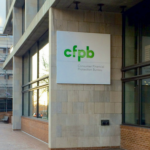Rep. Frank Pallone [D-N.J.], who is now the chairman of House Energy and Commerce Committee, has re-introduced a bill, called the Stopping Bad Robocalls Act, which drastically expands the definition of an automated telephone dialing system.
Rep. Pallone previously introduced the bill last June, during the previous Congressional session, but was not able to get enough momentum to get the bill passed.
“Americans are fed up with robocalls. It is incredibly annoying to repeatedly get unwanted calls from people you don’t know and don’t want to talk to,” Rep. Pallone said in a statement. “Despite previous efforts like the Do Not Call Registry, robocalls are still on the rise. The Stopping Bad Robocalls Act will equip consumer protection agencies with innovative, new tools designed to stop the abusive practices by robocallers and better restrict unauthorized robocalls.”
The new bill is co-sponsored by 17 other members of the House of Representatives, all of them Democrats.
A copy of the bill can be accessed by clicking here.
Among the provisions in the bill are:
- Amending the Telephone Consumer Protection Act (TCPA) to ensure that the FCC has the authority and the tools to take strong, quick action when they track down robocallers;
- Allowing consumers to revoke consent they had previously given to receive calls at any time and in any reasonable manner;
- Codifying a reassigned number database to put robocallers on notice when a telephone number they may have previously been authorized to call has been given to a new customer who has not authorized their call;
- Limiting the number of robocalls exempted from the TCPA under the FCC’s rules;
- Requiring calls to have verified caller identification information associated with a call before the call can be put through; and
- Extending the statute of limitations from one year to four years for callers violating robocall prohibitions.
Most problematic for the credit and collection industry is the provision that expands the definition of an autodialer. If enacted, an ATDS would be defined as equipment that makes a series of calls to stored telephone numbers, including numbers stored on a list, or to telephone numbers produced using a random or sequential number generator, except for a call made using only equipment that the caller demonstrates requires substantial additional human intervention to dial or place a call after a human initiates the series of calls, or a call that is made using an artificial or pre-recorded voice.
What defines an autodialer is currently a very hotly contested legal topic that the Supreme Court may choose to weigh in on.









